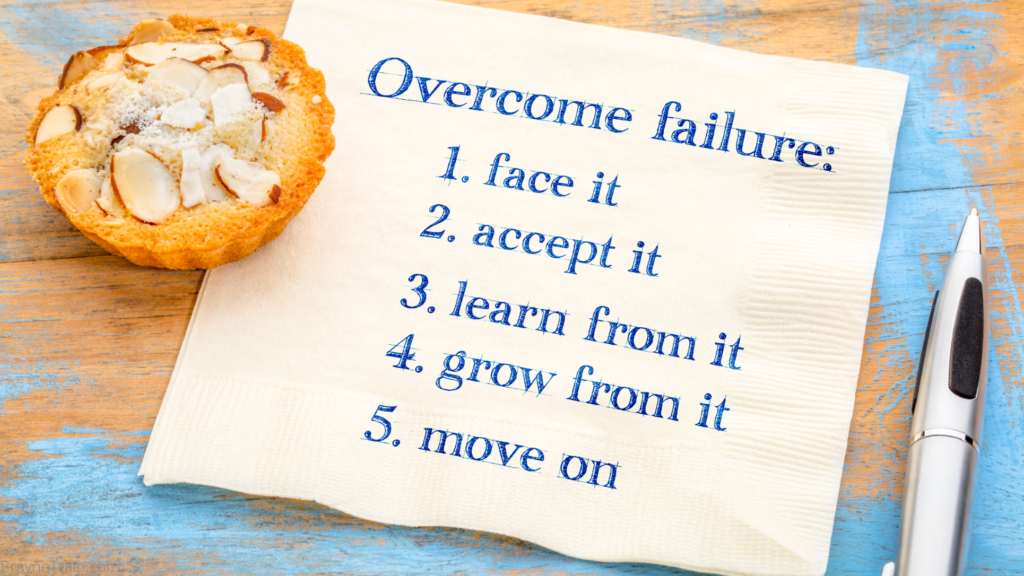
What Causes Laziness & Lack Of Motivation?
Laziness and lack of motivation are often used interchangeably to describe individuals with no interest in being active.
What is important to note is that laziness does not have the exact definition as a lack of motivation, although they are closely related.
So what causes laziness, and what causes lack of motivation?
According to science, laziness may be genetic and can be passed down to children from their parents. Also, depression or a lack of self-esteem can result in laziness. In addition, a lack of dopamine release can be the main factor for lack of motivation in individuals.
In this blog post, we will explain the causes of laziness and lack of motivation, in detail, and provide tips for increasing your motivation and getting rid of laziness for good.
So keep reading to learn more!

Is Laziness The Same As Lack Of Motivation?
Motivation is described as the feeling or desire to initiate, pursue or stop a goal-driven behavior. Motivation can be intrinsic or extrinsic.
Intrinsic motivation means you pursue an activity because the result is enjoyable for you. Extrinsic motivation means the reward of the activity is distinct from the activity itself.
Many experts believe intrinsic motivation is far more rewarding and beneficial than extrinsic motivation.
Laziness is defined as the lack of interest in activity despite having the ability to act. Laziness may be caused by many factors, including genetics, depression, or a lack of motivation.

What Causes A Lack Of Motivation?
Dopamine is part of the body’s reward system and is associated with joy, motivation, and cravings.
When secreted in the brain, dopamine motivates you to pursue goals, passions, and things that make you joyful.
Your motivation level depends on how much dopamine is released in your brain.
People can become addicted to unhealthy dopamine-inducing activities like drugs, social media, TV, video games, or sex and become desensitized to dopamine release.
Becoming desensitized to dopamine due to the overstimulation of the dopamine reward system can result in a lack of motivation.
Pursuit of reward also releases dopamine and celebrating the reward instead of the pursuit can set you up for failure.

Dopamine Reward Prediction Error
The dopamine reward prediction error is the theory that if you expect something to be gratifying, once you achieve that reward and realize it is not as enjoyable as you previously predicted, your dopamine baseline will lower.
This will result in a lack of motivation.
What Other Factors Can Cause a Lack Of Motivation?
- Working for the wrong reasons: if you are not living your authentic self and are working or pursuing a goal for someone else.
- Instead, live for yourself and nobody else, and pursue your goals and what it is that makes you happy. Stay authentic.
- Loss of control over your life: if you blame others or the environment for your failures and do not take responsibility for your actions.
- Instead, take responsibility for your life, mistakes, and choices. Learn from your failures and move on.
- You seek immediate results: not being patient and looking for quick fixes can result in a lack of motivation.
- Instead, track your progress and celebrate small wins to keep your motivation high. Be patient.

- Low self-esteem: having low self-esteem means having a low sense of self-worth.
- Instead, work on raising your self-esteem and practice self-care and self-love. Increasing your self-esteem will help you stay motivated.
- Setting unrealistic goals: if you set unrealistic goals, you will feel overwhelmed and likely lose motivation quickly.
- Instead, set small, reachable, realistic goals and celebrate your small wins.
- You are afraid of failure: You fear making mistakes and being judged by others for your failures.
- Instead, change your perception of failure and stop caring about what others think of you.
- What matters is you and how you feel about yourself. Remember, failing is part of the journey towards true success.

- Your personal life is out of balance: a break-up, losing a loved one, depression, lack of exercise, unhealthy diet, etc.
- Instead, practice self-care and self-compassion. Follow a healthy lifestyle and take breaks when you need them. Do not overwhelm yourself with responsibilities.
- Too much social media: comparing yourself to others can leave you feeling upset and unmotivated.
- Instead, practice digital detox and stay away from social media as much as possible.
To learn more about a dopamine detox, click here.
How To Increase Motivation:
- Dopamine detox: a dopamine detox will help reset your dopamine baseline.
- Make “seeking” the reward: If you make the pursuit of your goals the reward instead of the actual goal, it will keep you motivated indefinitely.
- Rediscover your direction in life: meditate and imagine yourself staying the way you are, unmotivated, in five years and what it can lead to. Then, re-imagine yourself motivated and what it can be like in five years.
- Realizing you are not on the correct path and what it can lead to in the future can help motivate you.
- Identify the value of your work: write down your goals and passions and describe what it means to you and why you want to achieve them.
- Give yourself breaks while you work: take breaks during work to avoid burnout.
- Measure your progress: keeping track of your progress, however small, helps keep you motivated.
- Raise your self-esteem: work on raising your self-esteem; practice self-care, be kind to yourself, and do not judge yourself if you fail. Get back up and try again.

What Causes Laziness?
Genetics
In a study done on rats, those with a larger dopamine system were shown to be more active.
Rats with a larger dopamine system needed activity; otherwise, their brains would react similarly to those addicted to cocaine or heroin and going through withdrawal.
The Couch Potato Gene
Research indicates a gene may be responsible for laziness. The “Couch Potato Gene” is responsible for a type of dopamine receptor. If you lack this gene, you are more likely to become lazy.
A study done in China indicated that a mutation in a gene, which has a critical role in the brain, may explain why some people are less inclined to exercise and are more likely to put on weight and develop health problems.
However, it’s important to note that genes are not solely responsible for laziness, and environmental factors are also involved.

The 8 Categories of Laziness:
Psychologists have narrowed down the science of laziness into eight categories; each describes a unique problem.
Fatigue
You feel lazy because you feel tired and do not have the physical capacity to be active.
It’s not laziness; you simply are not taking care of yourself. For example, you lack sleep, stay up too late, sleepwalking, party too much, etc.
Solution: practice self-care and self-compassion.
Regret
You feel lazy because you feel as though an opportunity has passed you by.
Also, you have given up and believe that it’s too late to start. You likely do not believe in yourself and your abilities and lack self-confidence.
Solution: work on increasing your self-confidence and self-esteem.
Click here to learn about self-confidence & self-esteem.
Internal shame
Shame can be extremely unproductive and can ruin your mindset. Shame comes from a lack of self-esteem and self-compassion.
You become frustrated with yourself and your lack of improvement or abilities, therefore, become lazier and lazier. This becomes a vicious cycle.
Solution: work on raising your self-esteem and practice self-care routines.
To learn about a 7-step self-care routine, click here.
Social fear
You hold yourself back because you fear failure and being judged by others.
Also, you care more about what others think of you instead of caring about what you think of yourself.
Solution: work on raising your self-esteem and self-confidence. Stop caring about what others think. Meditate.
Click here to learn how you can raise your self-esteem and self-confidence.
Neuroticism or anxiety
You feel lazy because when you are faced with new opportunities or challenges, you are overwhelmed by your fears and anxiety, which stops you from taking action.
Solution: therapy, self-care, and meditation can help you overcome your anxiety and face your fears.
To learn about ways you can reduce your anxiety fast, click here.
Uncertainty
You hesitate because you are too afraid of the unknown and have an extreme fear of uncertainty.
Solution: meditation and mindfulness practice can help you face your fear of the unknown.
To learn more about mindfulness practice, click here.
Apathy
You feel lazy because you don’t care about anything. This may be a sign of depression.
Solution: seeking help from a professional, such as a therapist or psychiatrist, is essential if you believe you suffer from depression.
Self-definition
You identify yourself as lazy, so you permit yourself to act lazy.
Solution: meditate and seek help from a therapist to find out the underlying cause. Work on raising your self-esteem. Rediscover your passions in life. Gradually you can change the way you define yourself.
Disclaimer: If you suffer from depression, make sure to consult with a medical professional and seek immediate help. The information provided by BrayneTrain is based on scientific research and information drawn from medical societies and governmental agencies. However, it is not a substitute for professional medical advice, diagnosis, or treatment.
Takeaway
Although not the same, laziness and lack of motivation are closely related, laziness may be due to a lack of motivation. There are many reasons for being lazy or lacking motivation, including genetics, depression, or a lack of self-esteem. Identifying the underlying cause and seeking help from a professional is essential. Practicing meditation, mindfulness, and following a healthy lifestyle can also help improve your self-worth and help increase your motivation for achieving your goals. Thank you for reading.
References:
Schultz W. Dopamine reward prediction error coding. Dialogues Clin Neurosci. 2016 Mar;18(1):23-32. doi: 10.31887/DCNS.2016.18.1/wschultz. PMID: 27069377; PMCID: PMC4826767.
Rhodes JS, Gammie SC, Garland T Jr. Neurobiology of Mice Selected for High Voluntary Wheel-running Activity. Integr Comp Biol. 2005 Jun;45(3):438-55. doi: 10.1093/icb/45.3.438. PMID: 21676789.




